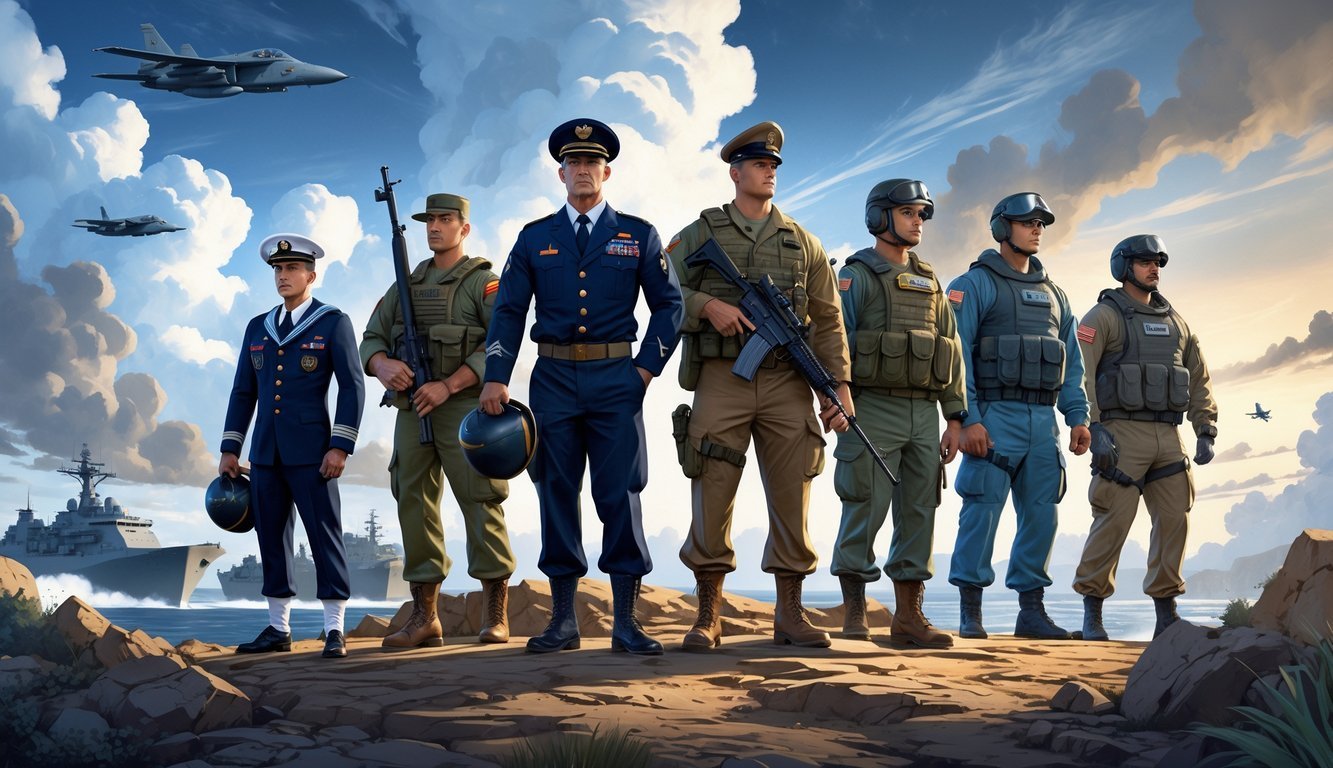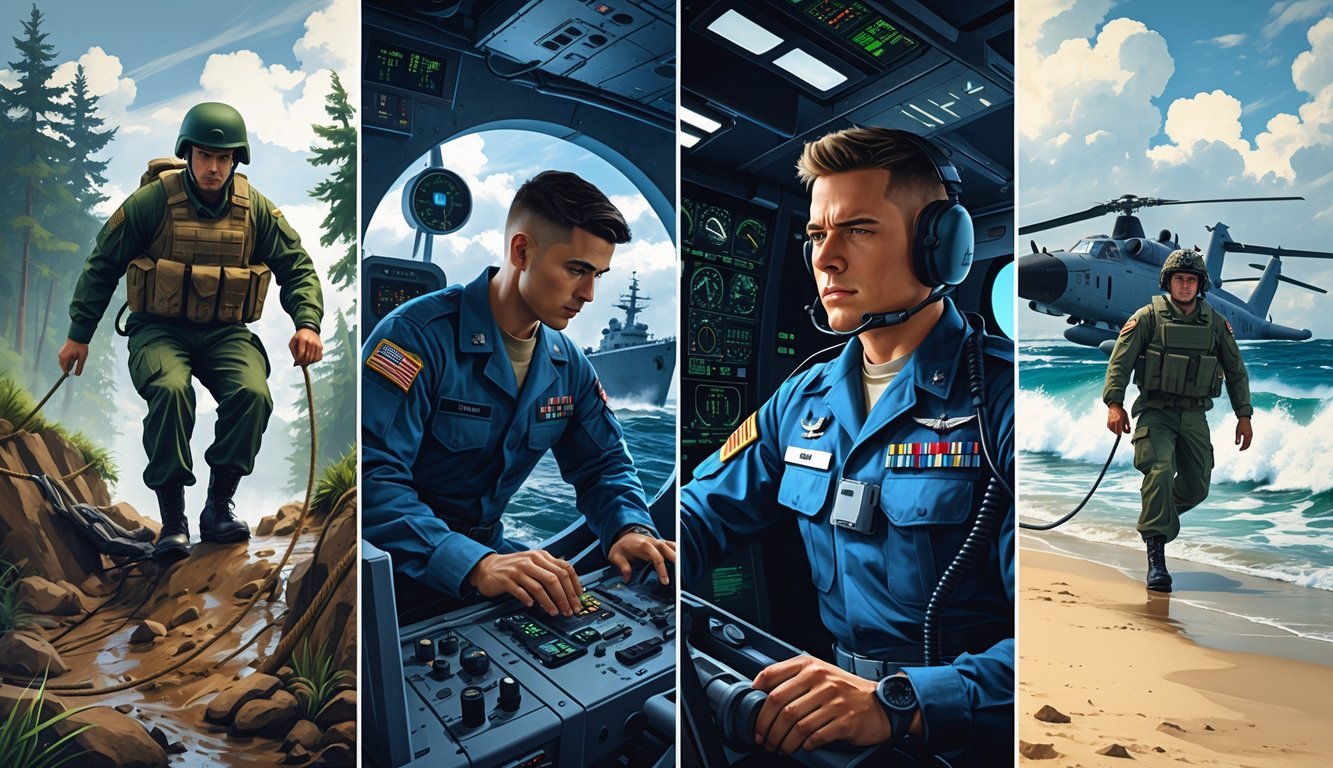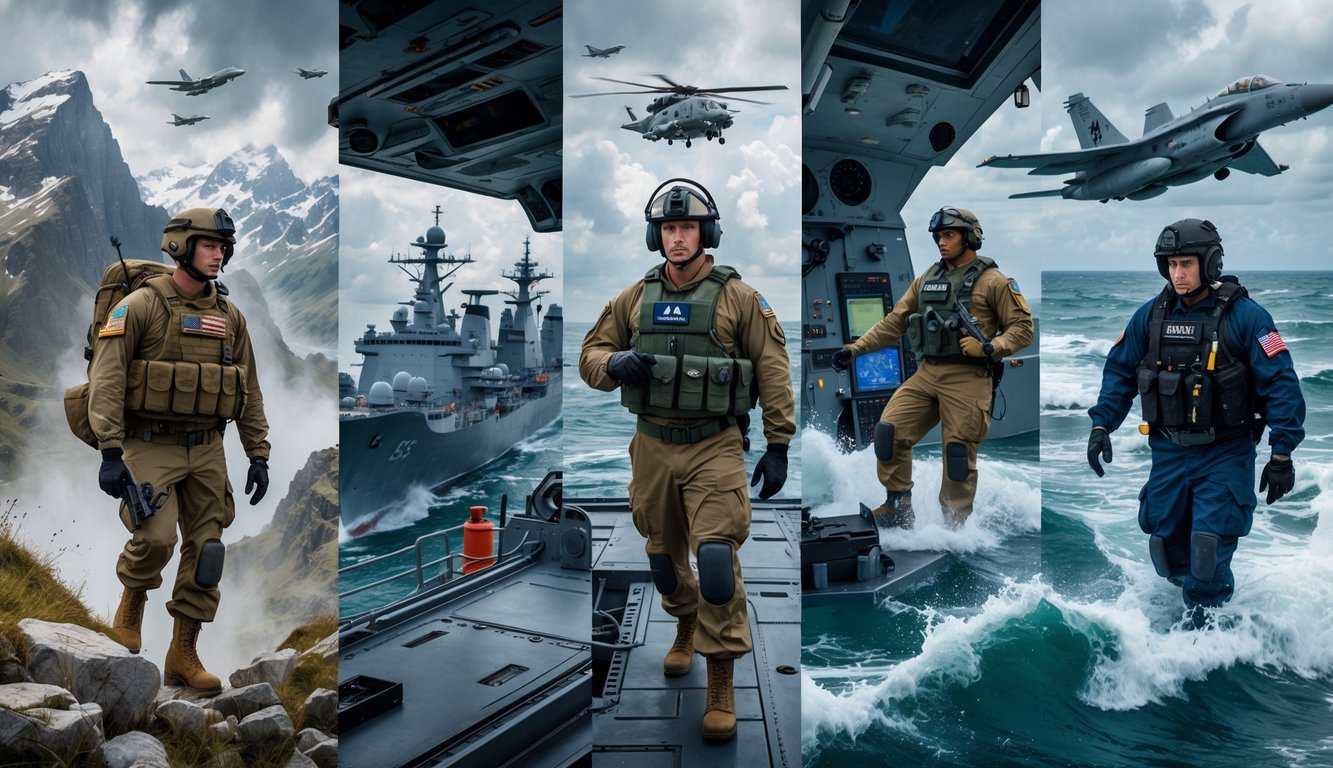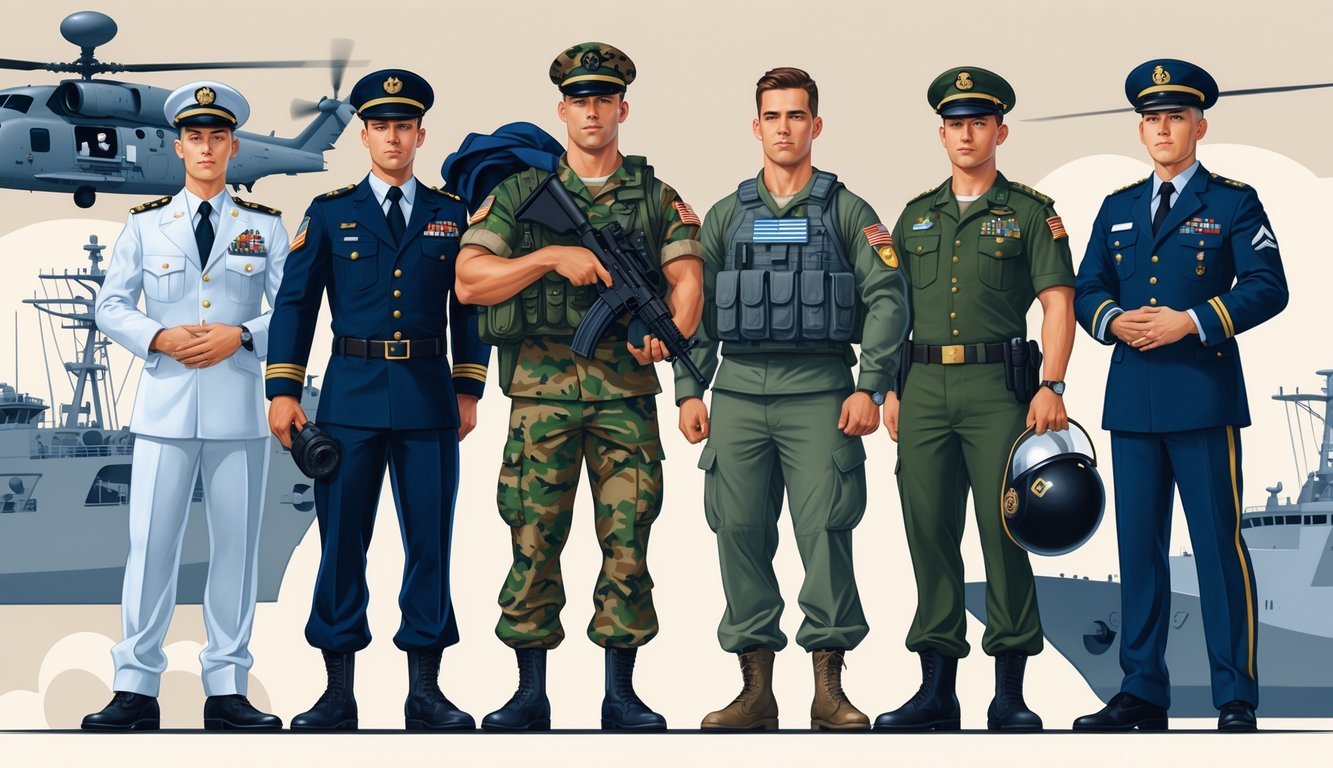PsychNewsDaily Publishers
100 Summit Drive
Burlington, MA, 01803
Telephone: (320) 349-2484
PsychNewsDaily Publishers
100 Summit Drive
Burlington, MA, 01803
Telephone: (320) 349-2484
The Marine Corps features the most demanding basic training, emphasizing physical endurance and mental resilience through rigorous workouts, extensive boot camp, and high-stakes survival challenges.

Ever wondered which military branch really pushes recruits to their breaking point? Most people point straight to the Marine Corps.
The Marine Corps has a reputation for the toughest basic training. They’ll test you physically and mentally in ways the other branches just don’t. Their training throws you into grueling workouts and strict discipline that’s hard to match anywhere else.
Every branch in the U.S. military brings its own set of challenges. But the Marines really stand out for their high physical standards and long, exhausting boot camp.
What makes one branch harder than another? It depends—maybe it’s the strength tests, maybe it’s the mental grind. Everyone’s got their own breaking point.
If you know the differences, you can figure out which path fits your goals. It’s honestly helpful to get a real sense of what to expect before you sign up.

Trying to figure out the hardest branch? You’ll want to think about a few key things. How tough are the physical and mental tests? How long is the training? Are there special skills or elite programs you need to tackle?
All branches test your physical fitness and mental grit, but some just push harder. The Marine Corps boot camp is famous for being brutal, with endless obstacle courses, gas chamber drills, and intense PT.
You’ll also need mental toughness to get through the stress, fear, and exhaustion. Staying focused during survival challenges and combat simulations is a must.
The way you stay calm under pressure really matters. Some people handle it; some don’t.
Training looks different in every branch. In the Marines, basic training runs about 12 weeks and is packed with tough physical and mental tests.
The Air Force leans more toward technical skills. You’ll need high ASVAB scores and to show you’re physically ready, but the physical side isn’t quite as punishing as the Marines or Army.
Training might include everything from commander evaluations to long field exercises. The harder the course, the more it weeds out those who can’t keep up.
Special forces? That’s a whole different beast. If you want to try for Navy SEALs, Green Berets, or Marine Raiders, get ready for extreme tests—Hell Week, combat diving, survival under enemy fire.
These elite units demand top physical shape, serious mental strength, and the ability to face unconventional warfare. Their training shapes you for the most dangerous situations out there.
Only a tiny percentage make it into these groups. The standards are sky-high, and the training is relentless.

Each U.S. military branch throws its own unique challenges at you. Some focus on brutal basic training, while others demand advanced skills—think underwater ops or survival tactics.
Your experience really depends on the branch’s mission and what they expect from you.
If you sign up for the Marines, brace yourself. Their Boot Camp lasts 13 weeks and is known for being both physically and mentally exhausting.
You’ll face The Crucible, a 54-hour test of teamwork, endurance, and survival skills—all while you’re tired and stressed.
Training covers hand-to-hand combat, marksmanship, and how to operate in combat zones. Marines train to be the first on the battlefield, so they push you to your limits.
It’s tough, no doubt about it, and the goal is to build warriors who can handle anything.
The Army’s Basic Combat Training takes about 10 weeks. You’ll learn first aid, marksmanship, and get in shape.
Discipline and teamwork are huge here, and you’ll train for all kinds of environments.
Want more of a challenge? Ranger School and Green Beret training are brutal. You’ll dive deep into survival, navigation, and guerrilla tactics.
Long marches, hard tactical exercises—the elite Army units don’t mess around. The Army also offers a ton of different roles, so your experience can really vary depending on your specialty.
Navy SEALs start with BUD/S (Basic Underwater Demolition/SEAL) training, which is legendary for being tough. You’ll get hammered with swimming, running, and underwater drills.
Hell Week? That’s five days of almost no sleep and constant training.
Not a SEAL? You’ll still need skills like line handling, firefighting, and running battle stations on ships. Navy training is all about water-based and naval combat.
If you love the ocean and want a physical challenge that depends on teamwork, the Navy might be your thing.
The Air Force looks for strong academic skills. You’ll focus on technology, communications, and learning how to handle aircraft or support systems.
Basic training is there, but you’ll also face a lot of technical tests.
The Space Force is newer and focuses on space and satellite ops. Training checks your technical knowledge and teamwork.
These branches might not be the hardest physically, but they demand sharp minds and attention to detail.
The Coast Guard trains you for both land and sea missions. Boot camp covers firefighting, first aid, and survival.
You’ll need to react quickly in emergencies, especially during rescue missions.
Training includes boat handling, swimming, and sometimes land combat. The Coast Guard is smaller, and while it’s less stressful than some, you’ll still face real physical and mental challenges.
If you want a mix of rescue work and military skills—plus some variety in climate—the Coast Guard could be a good fit.

Every military branch has its own entry rules, training style, and expectations. Some focus more on physical strength, others on technical know-how.
These differences can really shape your experience, so it’s worth thinking about before you choose.
The Air Force usually sets the bar highest for academics and tech. You’ll need solid test scores and technical skills to get in.
Marine Corps basic training gets the nod for being the toughest. It lasts 13 weeks and is packed with demanding physical and mental tests.
Expectations for women change by branch, but most hold everyone to the same physical standards. Some branches adjust physical tests, but all want high fitness and discipline.
The Marine Corps is toughest on the physical side. The Air Force is hardest to get into academically. The Army and Navy are somewhere in the middle. Each branch is tough in its own way, depending on your strengths.
Most people say the Navy and Army have less strict entry requirements than the Air Force or Marine Corps. Their basic training is still hard, but some folks find it a bit more manageable.
Most branches pay service members the same base salary. Rank and years of service decide that part.
Still, some branches throw in extra bonuses. These can depend on your job, special skills, or if you get deployed somewhere tough.
Where you work and your specific role can bump up your total pay, too. It’s not always straightforward, honestly.